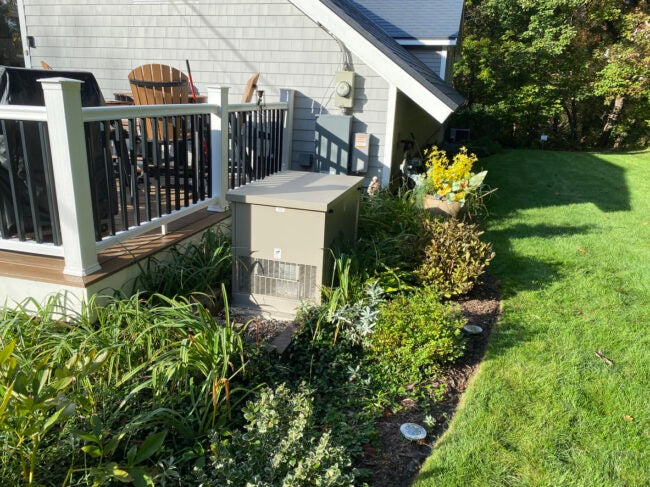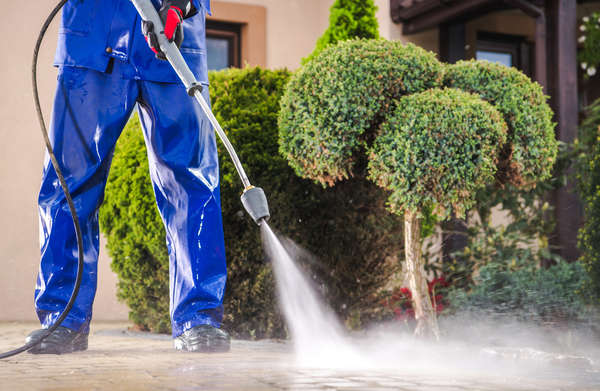Pressure washers are incredibly useful tools for removing graffiti, dirt, and other stubborn debris from various surfaces. However, there are certain situations where using a pressure washer is not recommended. While it’s obvious that you should avoid pressure washing people, animals, and plants, there are also surprising objects around the home that can be damaged by the high-pressure water. It’s important to be aware of these objects before using a pressure washer for spring cleaning.
Windows
Although it may seem like a great idea to quickly wash your windows with a pressure washer, fragile glass panes cannot withstand the high-pressure spray. The force of the water can blow out the glass, leaving you with a broken window and a mess to clean up. It’s best to find an alternative method for cleaning windows.

Electric Meters
Electric meters have solid metal casings with transparent glass or plastic covers. While they are designed to withstand rain, sleet, and snow, they can be vulnerable to the high-pressure stream of a pressure washer. The force of the water can cause damage to the electrical system, leading to costly repairs. It’s best to avoid pressure washing electric meters.
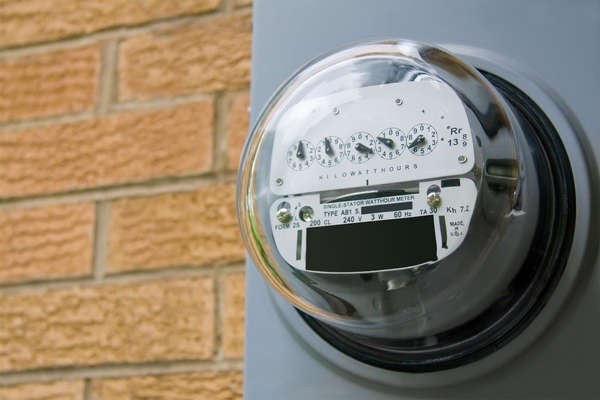
Asphalt Shingles
Using a pressure washer on a roof with asphalt shingles can potentially damage the roof and cause leaks. The high water pressure can remove the protective granules from the shingles and even break or dislodge them. This can lead to structural damage, rot, and mold in the house. It’s important to avoid pressure washing asphalt shingles.
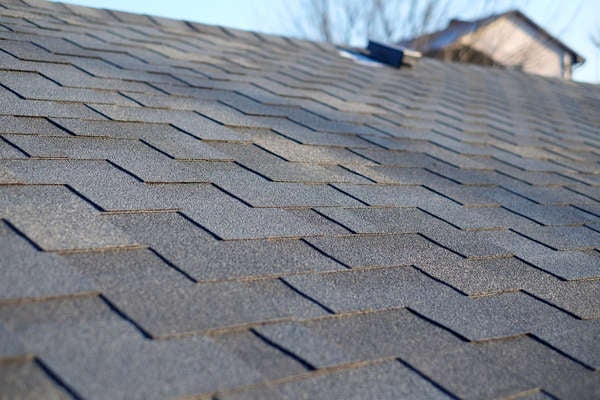
Gutters
While it may be tempting to use a pressure washer to clean out your gutters, it’s not a good idea. The powerful force of the water can pull the gutter off the house or cause damage to the downspout. It’s better to manually clean the debris from the gutters and then use a garden hose to rinse the inside.
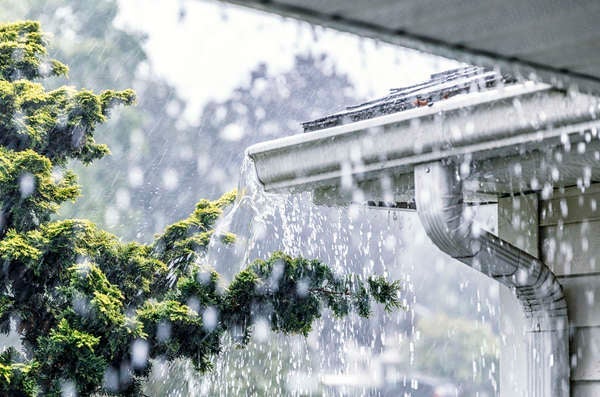
Old Mortar or Brick
Pressure washers are great for cleaning concrete patios and paving stones, but they can cause problems when used on old mortar or brick. The force of the water can pull mortar out of the wall and damage old brick, leading to significant structural damage and exposure to outdoor weather conditions. It’s best to avoid pressure washing old mortar or brick.
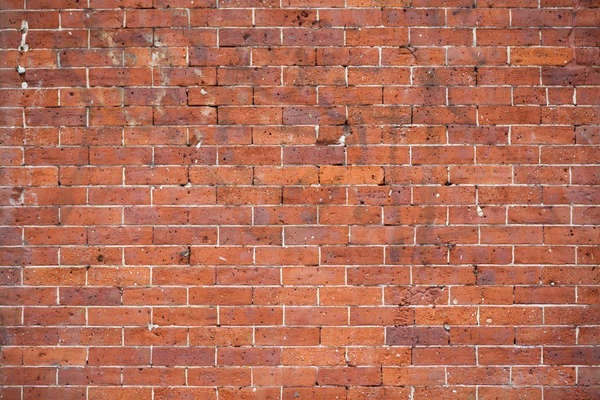
Vehicles
While some pressure washers are marketed as suitable for vehicles, it’s generally advised to avoid using a pressure washer on a vehicle. Slight changes in distance or angle can cause damage to the paint, leading to dents, chips, and potential rusting. The force of the spray can also force water into the engine, resulting in expensive repairs. It’s best to find alternative methods for cleaning vehicles.
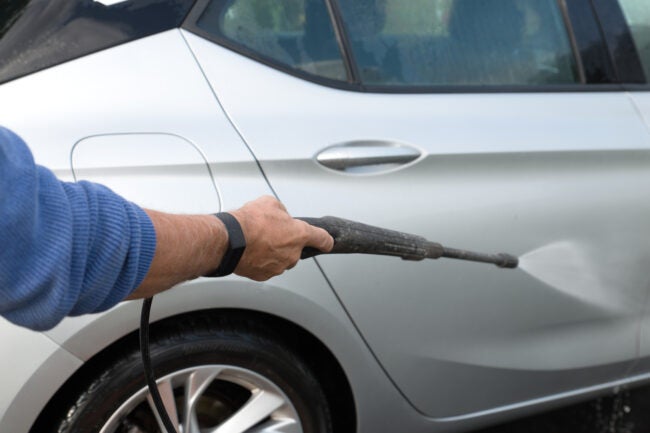
Stained or Painted Surfaces
While pressure washers are effective for stripping paint or stain from surfaces, they can also cause damage to stained or painted surfaces. The force of the water can chip, peel, or otherwise damage the stain or paint. It’s best to avoid using a pressure washer on these surfaces to preserve their appearance.
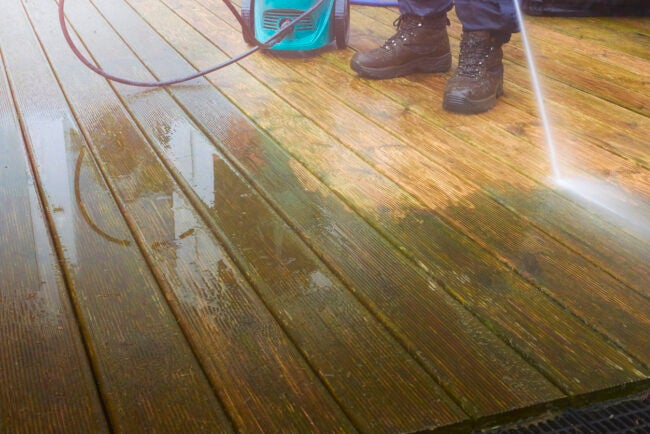
Light Fixtures
Outdoor light fixtures, such as lamppost lights and porch lights, are designed to withstand various weather conditions but not the high-pressure stream of a pressure washer. The force of the water can break glass panes or bulbs and may even detach the light fixture from its mount. Water can also seep into the cracks and damage internal electrical components. It’s best to avoid pressure washing light fixtures.
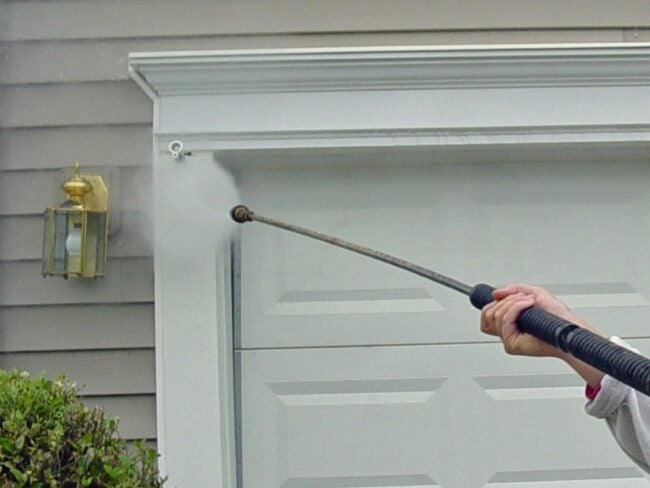
Air Conditioners
While air conditioners are built to withstand various weather conditions, they can be damaged by the high-pressure spray of a pressure washer. The force of the water can bend or crush delicate metal fins that help dissipate heat from the unit, restricting airflow. It’s best to use a garden hose, vacuum, and soft brush to clean between the fins and avoid using a pressure washer on air conditioners.
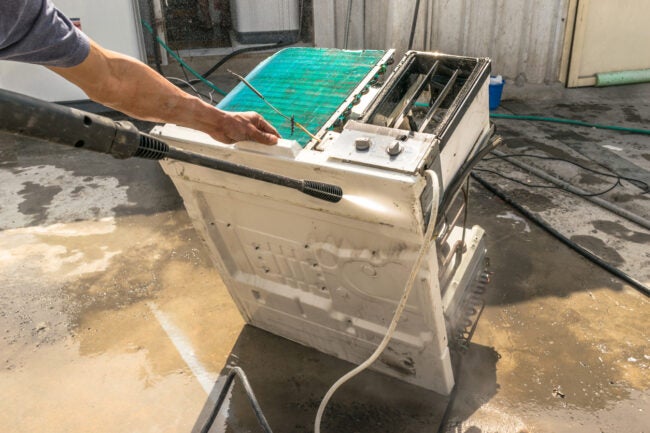
Pools
While it may be tempting to use a pressure washer to clean algae or stains from pool walls, it’s not recommended. The high-pressure water can damage the plaster shell of a cement pool, causing leaks. For vinyl liner pools, even a small amount of pressure can tear holes or cause the liner to pull away from cut areas. It’s best to use chemical methods, brushes, or robotic pool cleaners to clean pools and avoid pressure washing them.
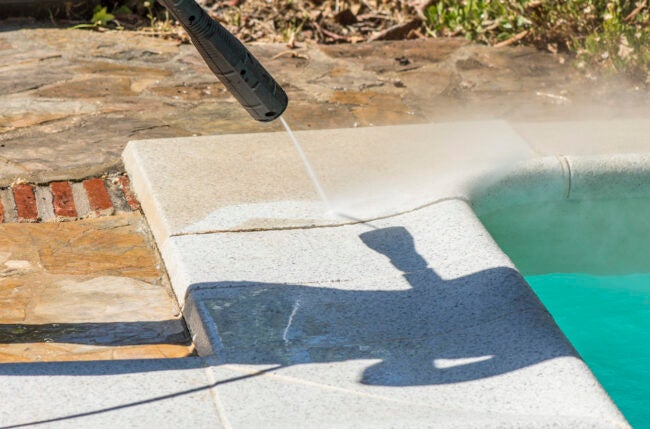
Solar Panels
While the long reach of a pressure washer may make it seem like a good tool for cleaning solar panels, it can actually cause damage. The high-pressure water can destroy the protective outer layer of the metal frame and even detach the panes from the frame, creating gaps for moisture to enter. Power washing solar panels can also void the manufacturer’s warranty. It’s best to avoid pressure washing solar panels and use alternative cleaning methods.

Fiber Cement Siding
Fiber cement siding is a durable option for homes, but it can be damaged by a pressure washer. Manufacturers advise against power washing fiber cement siding, as it can damage the surface. Instead, a low-pressure hose and medium bristle brush should be used to clean fiber cement siding, such as James Hardie board siding.

Patio Shades and Awnings
Avoid using a pressure washer on patio shades and awnings, as the high-pressure water can cause the fabric to tear. Outdoor furniture should also not be subjected to high-pressure water. Instead, mild soap and bleach with a low-pressure garden hose should be used to clean these outdoor fabrics, as advised by popular outdoor fabric manufacturers like Sunbrella.
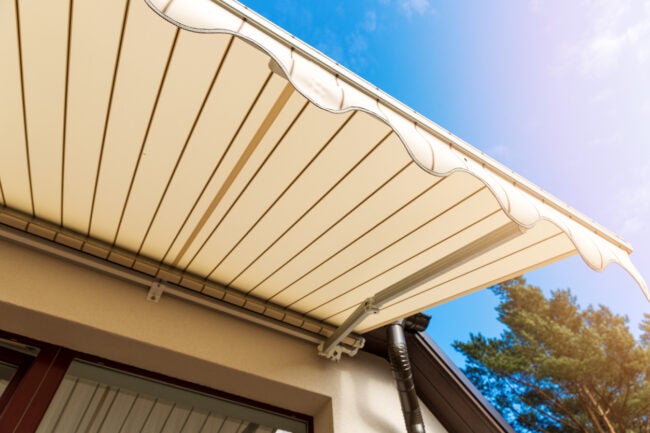
Generators
Generators are designed to withstand challenging weather conditions, but they can still be damaged by a pressure washer. The high-pressure spray can cut through hoses, belts, and other components inside the generator. It’s best to use a compressor to blow off dust and dirt, and then wipe the generator down with a rag and degreaser for cleaning.
